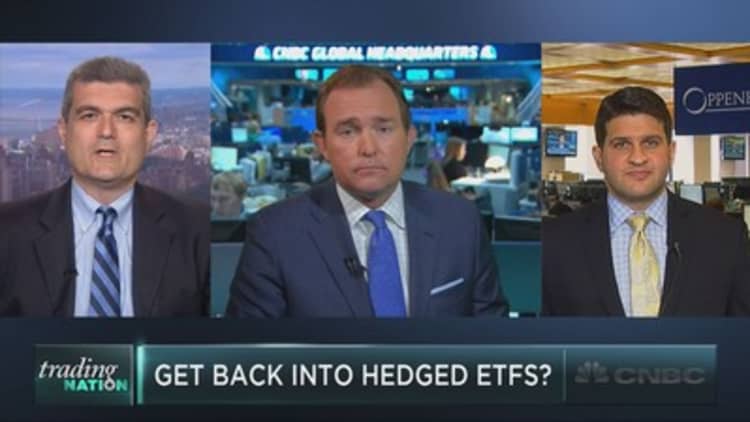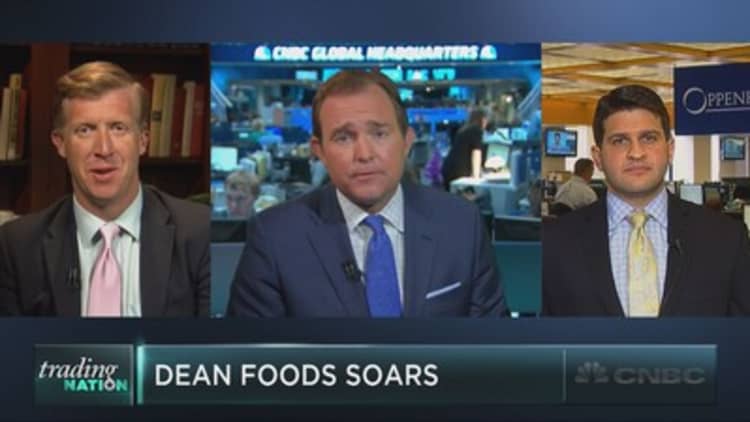


Bond yields around the world have risen sharply over the last few weeks, sending bond prices sharply lower. Some now warn that if the move intensifies, the impact on global markets could be intense.
"This could be very dangerous," said Boris Schlossberg, managing director of FX strategy with BK Asset Management. The rise in bond prices and global drop in yields "was so absurd and so incredibly bubblicious that I think we could be in danger of having a melt-up in yields, just as you had a melt-up in prices. And that could actually be very dangerous to global markets around the world because at this point, it doesn't take much. A 1 percent increase in yields would be a massive move that could take a lot of people out of the market."
That is, those who have had bullish positions in bonds, particularly those who have used large amounts of leverage, can withstand little in the way of a rise in yields. They may receive margin calls, forcing them to sell other assets, which would mean that a continued bond drop could have "drive-by ramifications that markets may not anticipate," he said.
Bonds, then, could become the "pain trade" that drives all sorts of market movements in nonlinear ways, Schlossberg said.
"When you have extremely crowded positioning, everything gets hit," agreed Ilya Feygin, managing director and senior strategist at WallachBeth Capital. "And there's not much in the way of bank liquidity, so what happens is that everything just gets liquidated. It poses a huge risk to the whole system."
Feygin blames the stimulative central bank actions of the last several years, which have forced everyone "to bet on QE explicitly or implicitly," referring to the asset-purchasing programs that the United States completed and the euro zone and Japan are currently embarking on.
As these trades suddenly stop working, the risk of "flash crashes" becomes very real, the strategist said.
And just because ultra-low yields indicated to many investors that bonds were in a bubble doesn't mean that the unwind will be mellifluous.
"It's really similar to the Nasdaq bubble," Schlossberg said. "Everybody saw the disaster coming and was talking about it, but when it hits, it still hurts. A lot."
Want to be part of the Trading Nation? If you'd like to call into our live Monday show, email your name, number, and question to TradingNation@cnbc.com.






